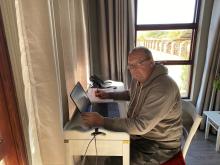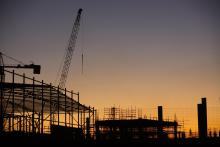
That is the view of South African surface mining and quarrying industry body ASPASA. The association says that it is particularly interested in information about the spread of the virus at different stages around the world, reports from countries who find themselves in the later stages, or those that have effectively controlled the spread.
ASPASA is a member of the Global Aggregates Information Network (GAIN) and says it is in constant communication with its peers across the globe where it shares new protocols on safer working conditions.
Nico Pienaar, ASPASA director, says that the latest GAIN report reveals that China is the first country to emerge from the pandemic. South Korea, UAE and New Zealand are examples of successful early national lockdowns, which coupled with contact tracing, minimised the spread of COVID-19. Other regions are still emerging from the effects of the pandemic, while the situation is still developing in others.
Pienaar says constant lessons are being learned and these are being communicated via GAIN to all member organisations for further dissemination to their respective local memberships. While the network's prime focus is usually on promoting greater sustainability and performance of the global industry, its attention lately has turned to sharing information about the COVID-19 pandemic.
Companies in different regions are sharing successful practices and these are being passed on to local markets. This type of intervention promotes the development of new protocols that cover plant operations, travel to and from work, in-plant personal hygiene disciplines, canteen practices, laboratory and changing-room area best practices, as well as a move to increase usage of online infrastructure to host meetings, training, management, marketing and administrative activities.
ASPASA states that, paradoxically, a legacy of COVID-19 will probably be increased operational efficiency, better process optimisation, with greater digitisation, in effect moving towards an "aggregates industry 4.0".
"Through ongoing sharing of best practices, the industry aspires to not only successfully survive the COVID-19 challenge, but also to achieve an even more sustainable, healthy and safe future for the global industry," the association adds.







